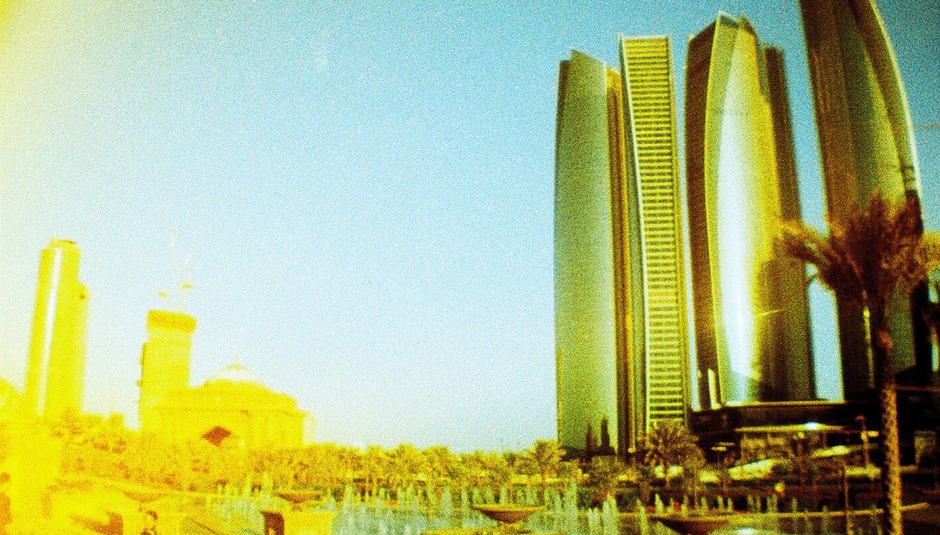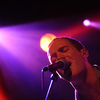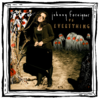“God said to Abraham, “Kill me a son”
Abe say, “Man, you must be puttin’ me on”
God say, “No.” Abe say, “What?”
God say, “You can do what you want Abe, but
Next time you see me comin’ you better run”
Well Abe said, “Where do you want this killin’ done?”
God said, “Out on Highway 61””
I stepped off the plane into the dry heat of the desert morning a little over twelve hours earlier than planned. My trip to Abu Dhabi, at the invitation and expense of the Aloft hotel chain, had been moved forward at the last moment when the Islamic authorities sighted the new moon and declared Eid al-Adha for the following Saturday. The religious holiday, which commemorates the willingness of Abraham to sacrifice his son at God’s command – Christian and Qur’anic traditions differ over whether that son was Isaac or Ishmael – necessitates that the preceding night the sale of alcohol is prohibited. This is to ensure that believers approach Abe’s obedience in a spirit of sober contemplation. Aloft had been planning to host ‘Turning Up The Spotlight’, their Battle of the Bands competition, on the Friday. However, after apparently being caught unawares by the annual holiday they obviously realised that a spirit of sober contemplation would be wholly unsuited to a Battle of the Bands and scrambled to rearrange the show for Thursday evening.
Hence the earlier flights, for myself and for the eclectic batch of judges: Charlatans guitarist Mark Collins, Grammy award-winning producers Kevin Bacon and Jonathan Quarmby, Facebook competition winner Karen Newby, and Radio One’s Huw Stephens. That, at least, was the plan. The change of date meant that Huw Stephens who, with scant regard for the timing of Islamic religious festivals, hosts a weekly radio show on a Thursday, was unable to make it. This meant some immediate changes for me. “We’d like you to step in as a judge”, one of the organisers told me shortly after I arrived at the Aloft Abu Dhabi, “Don’t worry, it won’t be anything like X Factor.”
Later that evening, after the stifling heat of the day had given way to the pleasant warmth of the night, I joined the rest of the judges by the hotel’s rooftop pool. The stage behind the pool didn’t have a lot of space in front of it to begin with, but now most of that space had been taken up by another stage with a long desk and a row of chairs. It looked unmistakably like the set of X Factor.
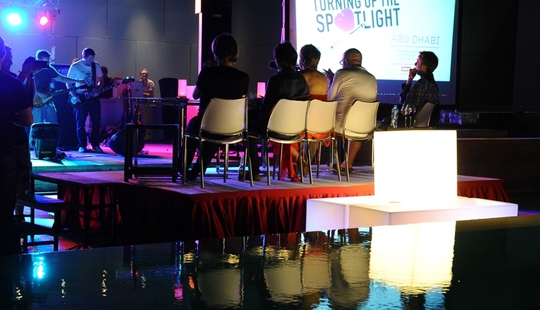
The three bands: Nikotin, Beat Antenna and Tim Hassall, were all milling around, and it was already obvious that they were taking things seriously. For them, the prize was a golden ticket to come and play a show in London at the opening of Aloft’s newest outpost. In between sound-checking they spoke about life in the United Arab Emirates. They had all earlier made the two hour drive down the coast from Dubai, where much of UAE’s cultural innovation happens. Indeed, the organisers admitted that the bands had been chosen for the show after they’d found it impossible to find suitable bands playing original music in Abu Dhabi.
Like the overwhelming majority of the UAE’s population, all of the musicians are essentially expats. Only 1 in 6 people living in the UAE are local Emirati, the rest are transient workers drawn here by the almost non-existent tax system but subject to strict immigration controls: lose your job, and you lose your visa and face deportation. Even people born here, like the musicians in Nikotin, do not automatically receive citizenship. Another result of making visas dependent on employment is that it’s a tough country in which to play music for a living. Writing ‘struggling artist’ on your visa application won’t impress anybody.
Beat Antenna, who are all from England, told me a little about the lifestyle here: “It’s a weird place to live, because you feel like you’re constantly on holiday. You go from hotel to hotel, your car is valeted, and there’s an Americanised feel, but the culture is completely different – as you see from Friday being a ‘dry day’. There’s a culture grind between the Westernised elements and the local culture, where you have the call to prayer five times a day.”
The attitude to alcohol is a good example of this uncomfortable juxtaposition of cultures. Drinking is theoretically frowned upon and is subject to heavy taxation and strict restrictions on where it can be sold. The only bars are in hotels, and although a pint of beer can cost you £8 the local workforce who pay so little income tax are happy to take the hit. The hotel dance-floors are packed with drunk people dancing to pop music. They could be anywhere in the world.
At that moment, however, the price of alcohol was of no concern to me. At the Aloft, judges drank for free. Before long we were ushered into our seats at the long X Factor desk while an enthusiastic radio DJ from Dubai burbled excitedly. He told us he worked for a station called Radio One, which made me think wistfully of Huw Stephens and how I wished he was there to play the role of indie Simon Cowell instead of me.
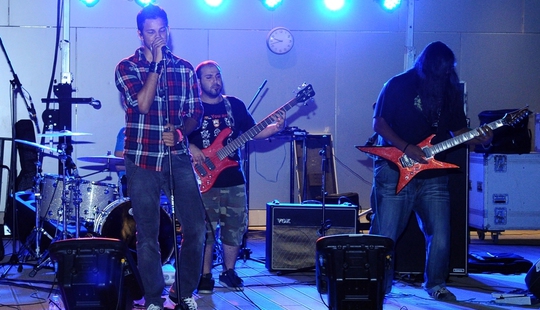
The first band up were Nikotin, a metal band whose prior claims to fame included opening shows for Nickelback and Maxïmo Park. Although their nationalities split them between India, Pakistan, Iran and Canada their sound was an MTV-friendly take on heavy rock. At the end of the set, when we judges were immediately asked for our verdict – the attempts to distance the night from X Factor seemed to fall at every hurdle – several picked out their track ‘Overloaded’ as possessing the sort of instantly memorable riff which Metallica fans in bedrooms all over the world search for.
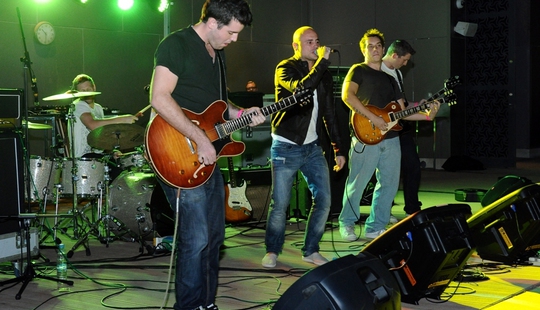
The second act, Beat Antenna, were unashamedly 'lad rock' – their sound ran the gamut from Hard Fi, on ‘Coming Around’, to Oasis, on ‘Love Never Lands’ – and they had recently supported Beady Eye. Their singer Neil Harrison accurately summed up the weirdness of this particular gig set-up when he told the crowd: “If you guys don’t come further forward, we’re gonna feel like we’re in a job interview, and that’s not good.” One of the judges described them as “muscular guys playing muscular rock”, but the more introspective ‘Cloud Suits’ was maybe their strongest track.
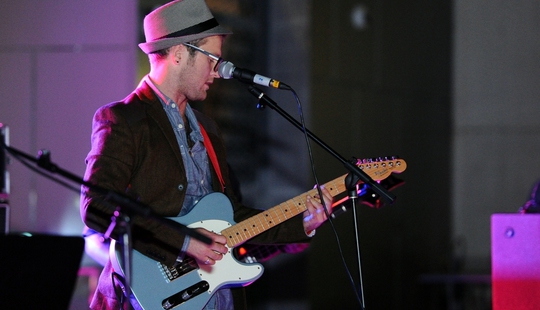
The final act, Tim Hassall, told us early on that he wrote a couple of his songs when he was “down in Louisiana”, a much mythologised place he seems to permanently inhabit in his music. There were lots of lyrical references to “Lafayette” and old friends going “down to the Bayou”. His duet with singer Gayathri Krishnan on ‘Christmas Eve’ stood out, even after judge Mark Collins picked him up for making the “classic rock and roll mistake” of declaring how happy he is to be “back in Dubai” while stood onstage in Abu Dhabi.
After the show we were bundled backstage to pick a winner, where we all spoke about how international the bands sounded, and how little life in the UAE seemed to be reflected in their music. We eventually settled on Nikotin, and soon the band were popping champagne corks and raving about the promise of their first visit to London.
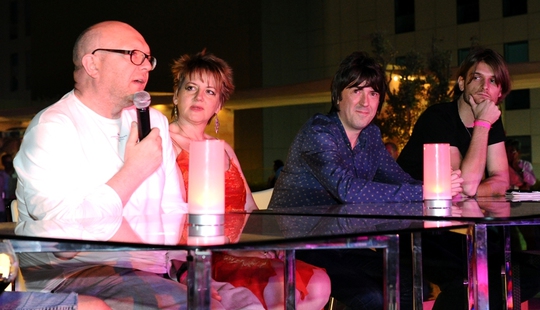
The next day I met Nikotin’s singer Cruize, and asked him about how he felt about the local music scene. “It’s quite restrictive,” he told me, “Because of local rules and regulations you have to be over 21 to play in a bar, because they’ll be drinks. It’s restrictive for young musicians who want to get out there, because they have no place to play, other than all-ages shows. This country is all about making money, so promoters really don’t go for all-ages gigs because they don’t get bar sales. That’s a restriction which causes trouble for bands in this part of the region. We do have a few promoters who try and promote local bands, although most people play covers. There is a music scene growing though.”
There don’t seem to be any purpose-built gig venues in the entire country: it’s either hotel bars or stadiums. Cruize said: “We don’t have any actual ‘venues’. Most of the places we play are in hotels, because they have bars with alcohol licenses so they can do this. They’re supposed to be opening a new Hard Rock Café, which I guess will be open to bands. Other than that, there are very few places where most of the local music scene play.”
Even if going to watch a local band remains a niche pastime, people will flock to see big names. Cruize added: “Abu Dhabi have been bringing huge acts down to the Yass Arena, which is where Metallica played recently. I think there were about 45,000 people there on a week day. Abu Dhabi have the F1 track so there’s going to be a series of big shows: Britney Spears, The Cult, Incubus and Paul McCartney. You can’t miss them.”
One of the things to remember about the UAE is that it’s still so young: it only recently turned 40. Bands like Nikotin are among the first generations that have lived their whole lives there. “Most of us were born and grew up in Dubai,” Cruize told me. “We’ve had the Dubai experience. Growing up, the music scene has been underplayed. Being a Muslim country, really heavy music is not really approved of but slowly it seems to be coming out in Dubai because Dubai is opening up. That’s something that we welcome.”
‘The Dubai experience’ is a hard thing to pin down, but the journalist and author Jim Krane gets close to it in his book ‘City of Gold’. Towards the end of it he writes: “Given everything I’ve written about this fascinating place, one must understand that Dubai is not a genuine city. Yet. It’s still an unfinished collection of buildings where the atmosphere is transitory, like an airport or a hotel. The population consists of flows of people rather than permanent residents. Life is superficial.”
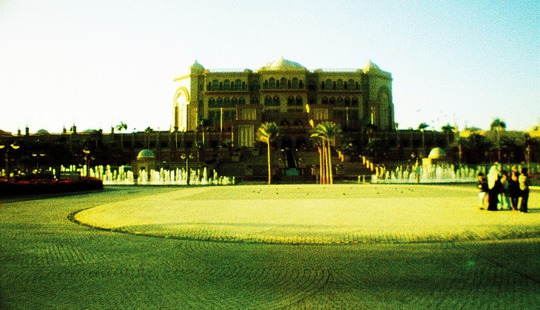
The same goes for Abu Dhabi, a place where it often feels like life is taking place within a bar room scene from Lost in Translation. Before I left I visited one of the city’s landmarks, the Emirates Palace Hotel. Inside this sprawling Xanadu, which contains a vending machine which sells gold bars along with various luxury goods shops, there is an exhibition about Saadiyat Island, Abu Dhabi’s planned quarter of museums and art galleries. Designed as the new centrepiece of the city’s cultural life, it will have branches of the Guggenheim and the Louvre. Just as with the promoters looking to fill stadiums, there is an attitude that when it comes to culture the UAE can afford to buy in the best of what the world has to offer. The local arts scene feels neglected by comparison.
Several weeks later, back in London, I got the news that Nikotin were not granted visas in time to make the gig. After the show goes on without them, I get an email from Cruize: “It was tragic that we couldn't make it due to the delay in getting our visas in time for the show. A lot of our fans in the UK were quite excited to hear that we were making our debut appearance in the UK, but alas we could not make it,” he wrote, before adding: “Winning the Abu Dhabi leg of the Aloft competition, on the other hand, did bring in a lot of interest and renewed exposure to the band.”
I hope winning the competition helps Nikotin get themselves heard, but I fear that they, just like Beat Antenna and Tim Hassall and every other musician in the UAE, are trying to climb a ladder which is missing all of its middle rungs. Hotel bars are as high as they can climb in a country willing to sacrifice its own homegrown potential for glamorous imports. There's plenty of money in Abu Dhabi, but there are some things it can't buy.

